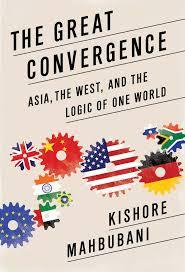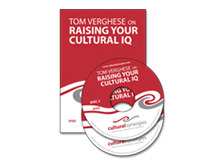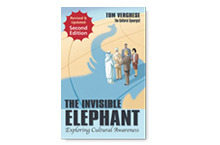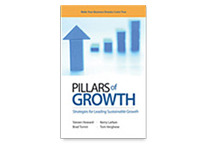
|
| THE CULTURAL SYNERGIST |
|
Following our October newsletter discussion on the 'Leadership Challenges in Emerging Markets' I would like to take the opportunity to delve further into the development of culturally intelligent leaders. Global leaders who work across borders have a broad range of skill-sets that influence their effectiveness. One of the findings from my doctoral thesis �The link between Cultural Intelligence and Effective Global Leadership� was that some leaders have high cultural intelligence and are very effective at working across borders, while others are not. One aspect of my study assessed whether the four components of cultural intelligence (CQ) are equally important for effective global leadership. Briefly the four components of CQ are:
 Quadrant 1 = Leaders who are high on CQ but low on effectiveness. Quadrant 2 = Leaders who are high on both dimensions. Quadrant 3 = Leaders who are low on CQ but high on �technical� effectiveness. Quadrant 4 = Leaders who are low on both dimensions. Traditionally I would argue that most organisations have promoted their global leaders based solely on their technical and organisational skills, those who sit in Q3. They may appear effective in the short-term but their lack of CQ will have a detrimental impact on their long-term performance. These leaders require additional support such as coaching and mentoring to improve their CQ. Leaders who sit in Q1 are a valuable resource for organisations moving into new emerging markets. Their high CQ skills can be dedicated to achieving trust and establishing positive relationships in cross-cultural settings. Leaders who sit in Q1 can be supported by their organisations by the provision of business skills training and MBA education. Ideally, we need leaders who sit in Q2 who are both effective and have high CQ. As organisations spread their �global footprint� these individuals will help sustain future business growth. For leaders sitting in Q4, they may require a reassessment of their role, perhaps their skills are better suited elsewhere in the organization. They may require support in awareness raising and self-insight. I would welcome your responses and any further discussions on the link between cultural intelligence and effective global leadership. If you would like to read or follow our Cultural Intelligence Blog go to: http://culturalsynergies.wordpress.com To read our latest discussion paper - The Business Case for Cultural Intelligence go to: http://www.culturalsynergies.com/images/stories/pdf_article/cq%20paperv3.pdf Best Wishes Tom Verghese Send to Friend |
||||
| Cultural Intelligence Matrix for Global Leaders |
||||

|
||||
Kishore
Mahbubani was a Singaporean Diplomat for 33 years and is currently Professor
in the Practice of Public Policy of the Lee Kuan Yew School of Public Policy at
the National University of Singapore. |
||||||
RECOMMENDED BOOK: � The Great Convergence: Asia, the West, and the Logic of One World." By Kishore Mahbubani .� By Kai Hammerich & Richard D. Lewis (2013). |
||||||
 |
||||||
|
|
RESOURCES 'Raising Your Cultural IQ - DVD and CD 'Raising Your Cultural IQ' explores the issues around culture, the challenges that culture can pose and provides some great strategies on how to leverage on cultural differences and similarities. 'The Invisible Elephant - Exploring Cultural Awareness' Book testimonial by Asma Ghabshi Visit our store here
|
|

|
||

|
||

|
||

|
|